
The Batavian Republic was the successor state to the Republic of the Seven United Netherlands. It was proclaimed on 19 January 1795 and ended on 5 June 1806, with the accession of Louis Bonaparte to the Dutch throne. From October 1801 onward, it was known as the Batavian Commonwealth. Both names refer to the Germanic tribe of the Batavi, representing both the Dutch ancestry and their ancient quest for liberty in their nationalistic lore.

Louis Napoléon Bonaparte was a younger brother of Napoleon I, Emperor of the French. He was a monarch in his own right from 1806 to 1810, ruling over the Kingdom of Holland. In that capacity, he was known as Louis I.
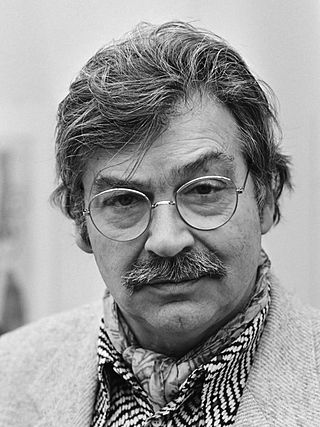
Christiaan Karel Appel was a Dutch painter, sculptor, and poet. He started painting at the age of fourteen and studied at the Rijksakademie in Amsterdam in the 1940s. He was one of the founders of the avant-garde movement CoBrA in 1948. He was also an avid sculptor and has had works featured in MoMA and other museums worldwide.
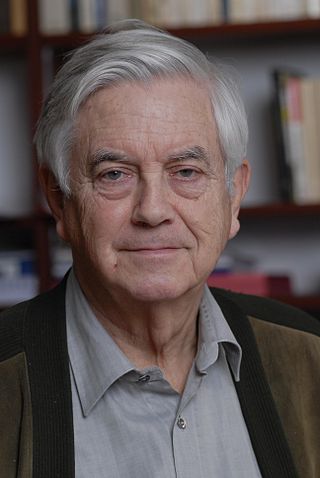
Frederik "Frits" Bolkestein is a Dutch retired politician and energy executive who served as Leader of the People's Party for Freedom and Democracy (VVD) from 1990 to 1998 and European Commissioner for Internal Market from 1999 until 2004 under Romano Prodi. Bolkestein studied Mathematics at the Oregon State University getting a Bachelor of Mathematics degree and continued his study at the University of Amsterdam obtaining a Master of Mathematics degree followed by a postgraduate education in Philosophy and Greek literature at his alma mater obtaining Masters of Philosophy and Arts degrees, followed by another postgraduate study in Economics at the London School of Economics obtaining a Master of Economics degree and additional study in Law at the Leiden University obtaining a Master of Laws degree.
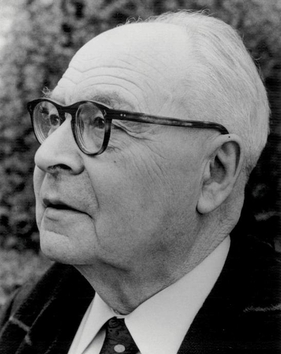
Georges Edmond Raoul Dumézil was a French philologist, linguist, and religious studies scholar who specialized in comparative linguistics and mythology. He was a professor at Istanbul University, École pratique des hautes études and the Collège de France, and a member of the Académie Française. Dumézil is well known for his formulation of the trifunctional hypothesis on Proto-Indo-European mythology and society. His research has had a major influence on the fields of comparative mythology and Indo-European studies.

Ary Scheffer was a Dutch-French Romantic painter. He was known mostly for his works based on literature, with paintings based on the works of Dante, Goethe, Lord Byron and Walter Scott, as well as religious subjects. He was also a prolific painter of portraits of famous and influential people in his lifetime. Politically, Scheffer had strong ties to King Louis Philippe I, having been employed as a teacher of the latter's children, which allowed him to live a life of luxury for many years until the French Revolution of 1848.
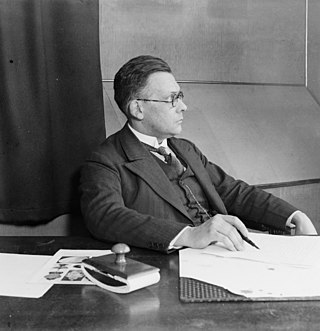
Jan Pieter Marie Laurens de Vries was a Dutch philologist, linguist, religious studies scholar, folklorist, educator, writer, editor and public official who specialized in Germanic studies.

Peter Rudolf de Vries was a Dutch investigative journalist and crime reporter. His television program Peter R. de Vries, misdaadverslaggever covered high-profile cases and set a Dutch television viewing record. For decades he was famous in the Netherlands for his works in unsolved crimes. He also became internationally renowned for his programme covering the disappearance of Natalee Holloway. In 2005, he founded his own political party which was disbanded soon after.

Isaac Lazarus Israëls was a Dutch painter associated with the Amsterdam Impressionism movement.

Kieft's War (1643–1645), also known as the Wappinger War, was a conflict between the colonial province of New Netherland and the Wappinger and Lenape Indians in what is now New York and New Jersey. It is named for Director-General of New Netherland Willem Kieft, who had ordered an attack without the approval of his advisory council and against the wishes of the colonists. Dutch colonists attacked Lenape camps and massacred the inhabitants, which encouraged unification among the regional Algonquian tribes against the Dutch and precipitated waves of attacks on both sides. This was one of the earliest conflicts between settlers and Indians in the region. The Dutch West India Company was displeased with Kieft and recalled him, but he died in a shipwreck while returning to the Netherlands; Peter Stuyvesant succeeded him in New Netherland. Numerous Dutch settlers returned to the Netherlands because of the continuing threat from the Algonquians, and growth slowed in the colony.

Marianne Louise Thieme is a Dutch politician, author and animal rights activist. A jurist and theologian by education, she served as the Party for the Animals' political leader from 2002 to 2019 and a member of the House of Representatives from 2006 to 2019.
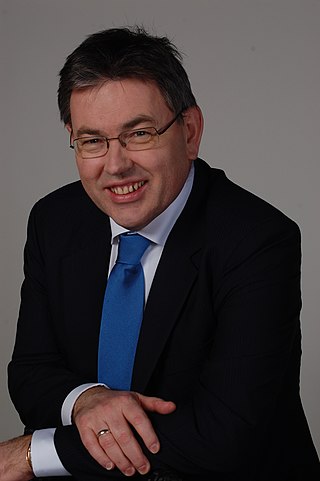
Derk Jan Eppink is a Dutch journalist, politician in the Netherlands, and former cabinet secretary for European Commissioners Bolkestein (1999–2004) and Kallas (2004–2007). In 2009, he was elected to the European Parliament for List Dedecker, and in 2019 for Forum for Democracy. In 2021, he became an MP in the Dutch House of Representatives for the JA21 party, but in 2023 he switched to the Farmer-Citizen Movement.

Erwin Olaf Springveld, professionally known as Erwin Olaf, was a Dutch photographer from Hilversum. Time magazine described his work as straddling "the worlds of commercial, art and fashion photography at once".

Martin Bosma is a Dutch politician and former journalist who has served as the Speaker of the House of Representatives since 14 December 2023. He entered the House of Representatives for the Party for Freedom (PVV) on 30 November 2006, and served as his party's spokesperson on matters of higher education, mass media and culture. He also served as Deputy Speaker of the House of Representatives from 2010 until 2023. On 14 December 2023, he was elected Speaker of the House of Representatives.

The economic history of the Netherlands (1500–1815) is the history of an economy that scholar Jan de Vries calls the first "modern" economy. It covers the Netherlands as the Habsburg Netherlands, through the era of the Dutch Republic, the Batavian Republic and the Kingdom of Holland.

Van den vos Reinaerde is the Middle Dutch version of the story of Reynard, as written by Willem die Madoc maecte. The poem dates from around 1250. It is considered a major work of Middle Dutch literature and has been called "the pinnacle of Gothic literature in the Netherlands."

Abraham de Vries was a Dutch painter who was one of the leading portraitists of his age. As he led a peripatetic lifestyle and worked in France, Antwerp and the Dutch Republic his stylistic qualities are difficult to pin down.

Hendrik Johannes Adrianus "Henk" Hofland was a Dutch journalist, commentator, essayist, and columnist. H.J.A. Hofland, as he is also commonly known, is often referred to as the éminence grise of Dutch journalism. In 1999 he was named Dutch "Journalist of the century" in a nationwide poll among his peers. He once described himself as belonging to the "anarcho-liberal community", though his political orientation is that of the secular center of society.
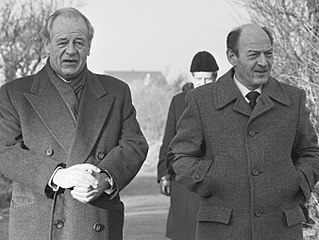
Freddy Heineken, chairman of the board of directors and CEO of the brewing company Heineken International and one of the richest people in the Netherlands, and his driver Ab Doderer, were kidnapped on 9 November 1983 in Amsterdam. They were released on a ransom of 35 million Dutch guilders on 30 November of that year. The kidnappers—Cor van Hout, Willem Holleeder, Jan Boellaard, Frans Meijer, and Martin Erkamps—were all eventually caught and served prison terms.
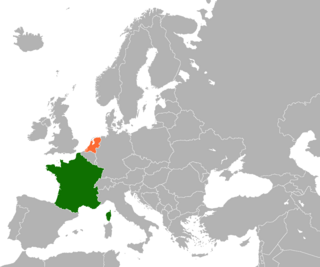
France–Netherlands relations are the interstate and bilateral relations between France and the Netherlands. The two countries notably share a border division in the Caribbean island of Saint Martin, to which the northern part of the island is a French overseas collectivity known as the Collectivity of Saint Martin, while the southern part of the island is a Dutch constituent country known as Sint Maarten. Relations between the two countries date back to the 17th and 18th centuries when a conflict led to the transformation of the Dutch Republic to the Batavian Republic and eventually the Kingdom of Holland. The two countries currently enjoy close cultural and economic relations. Both nations are members of the OECD and Organization for Security and Co-operation in Europe, as well as founding members of the European Union, NATO, and the United Nations.




















